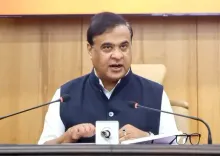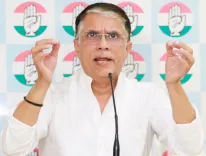Has the Delhi Government Introduced a Bill to Regulate Private School Fees?

Synopsis
Key Takeaways
- Delhi government introduces fee regulation Bill.
- Aims for transparency and accountability in fee structures.
- Establishes a three-tier regulation mechanism.
- Prohibits coercive actions against students.
- Penalties for non-compliance can be severe.
New Delhi, Aug 5 (NationPress) In a significant move to regulate private school fees, the Delhi government introduced the Delhi School Education (Transparency in Fixation and Regulation of Fees) Bill, 2025, in the Assembly on Tuesday.
Education Minister Ashish Sood stated that the Bill aims to foster predictability, transparency, and accountability within the fee structures of private unaided schools throughout the capital.
According to Sood, the Bill creates a robust institutional framework to ensure transparency and accountability in the regulation of private school fees, involving all stakeholders, including parents, teachers, and school management.
The proposal outlines an inclusive three-tier mechanism comprising a school-level committee, a district-level appellate committee, and a state-level revision committee to facilitate fair resolutions of fee-related issues.
The Bill explicitly prohibits any coercive measures against students for non-payment of fees.
Violations of this regulation will incur a penalty of Rs 50,000 per student, doubling after 20 days and tripling if unaddressed after another 20 days.
Additionally, for broader non-compliance with fee regulations, schools can face fines up to Rs 10 lakh. In severe or repeated incidents, the Director of Education holds the authority to suspend recognition or even assume control of the school's management to ensure adherence.
“This Bill represents a pivotal step in curbing arbitrary fee increases,” he emphasized.
The restrictions on coercive actions include barring schools from striking a student’s name from the rolls, withholding examination results, denying classroom access or co-curricular activities, public humiliation, psychological harassment, and imposing penalties.
Schools will not be allowed to raise fees under specific conditions: if their recognition is suspended, if they fail to pay staff salaries according to legal requirements, and if there is evidence of fund misappropriation.
Prior to the Bill's introduction, legislators from the ruling BJP expressed their gratitude towards Sood and Chief Minister Rekha Gupta for crafting a student and parent-friendly Bill.
Malviya Nagar MLA Satish Upadhyay remarked, “This initiative showcases the BJP government's political will and determination to implement transformative policies.”
He criticized the previous AAP government for neglecting the education sector, labeling it as merely a “political marketing tool” utilized for public money advertising.
BJP MLA from Ghonda, Ajay Kumar Mahawar, referred to the Bill's introduction day as “historic and one that promises to revolutionize the education sector.”
Adarsh Nagar MLA Raj Kumar Bhatia stated that the Bill mirrors the Rekha Gupta government’s dedication to students and their families.
While BJP MLAs lauded Sood, the opposition AAP legislators raised concerns, describing the legislation as a means to allow private schools to set fees at will.
Before the Bill's consideration in the Assembly, Sood engaged with a group of parents regarding the proposed legislation.
The Minister acknowledged their worries and reiterated that this Bill signifies a landmark reform aimed at creating a transparent, fair, and accountable framework for regulating fees in all unaided private schools.
Sood clarified that some factions are misrepresenting the Bill, asserting that it does not diminish government oversight of private institutions.
He affirmed that the Bill complements and strengthens the existing statutory framework established under the Delhi School Education Act, 1973, and the corresponding rules.
It neither supersedes nor undermines existing laws but introduces additional checks and balances in favor of students and parents.
Sood emphasized that for the first time, the Education Department will be empowered to act on even a single complaint from a parent regarding arbitrary fee increases.
The bill will be applicable to all private unaided recognized schools in Delhi.









